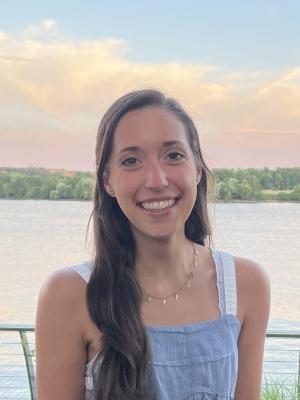
Viral Evolution, Pathogen dynamics, Phylogenetics
B.S., University of North Carolina at Chapel Hill, 2021
Lauren graduated with honors and highest distinction from the University of North Carolina (UNC) at Chapel Hill in 2021 with a B.S. in Biology and minors in Medical Anthropology and Statistics & Analytics. During her first year at UNC-Chapel Hill, Lauren joined the Infectious Disease Epidemiology & Ecology Lab (IDEEL) at the UNC Institute of Global Health and Infectious Diseases, where she was mentored by Dr. Steven Meshnick, Dr. Jonathan Parr, and Dr. Jonathan Juliano. Over the course of her time with IDEEL, Lauren worked on several studies aimed at understanding the molecular epidemiology of malaria in Sub-Saharan Africa. Her work culminated in an honors thesis investigating the prevalence of anti-malarial drug resistance in Dschang, Cameroon.
After graduating, Lauren joined the Human Immunology Section of the Vaccine Research Center (VRC/NIAID/NIH) as a post-baccalaureate fellow under Dr. Daniel Douek. While at the VRC, Lauren worked on a variety of timely projects aimed at understanding the immune response generated by SARS-CoV-2 vaccines in humans and non-human primates. Her team was particularly interested in evaluating the B cell response to heterologous antigen exposures given the continued emergence of SARS-CoV-2 variants. In addition to COVID-19 research, she also worked to implement phage immunoprecipitation sequencing (PhIP-seq)— a high-throughput method for detecting antigen reactivity in human sera—at the VRC.
As an NIH Oxford-Cambridge Scholar, Lauren is hoping to combine phylogenetic inference techniques and phylodynamic modeling with laboratory experiments to advance our understanding of how viruses evolve. She is particularly interested in interrogating the factors that influence and constrain the evolution of enterovirus capsid proteins.
Dr. Patrick Dolan (NIAID) and
Prof. Aris Katzourakis (Oxford)


